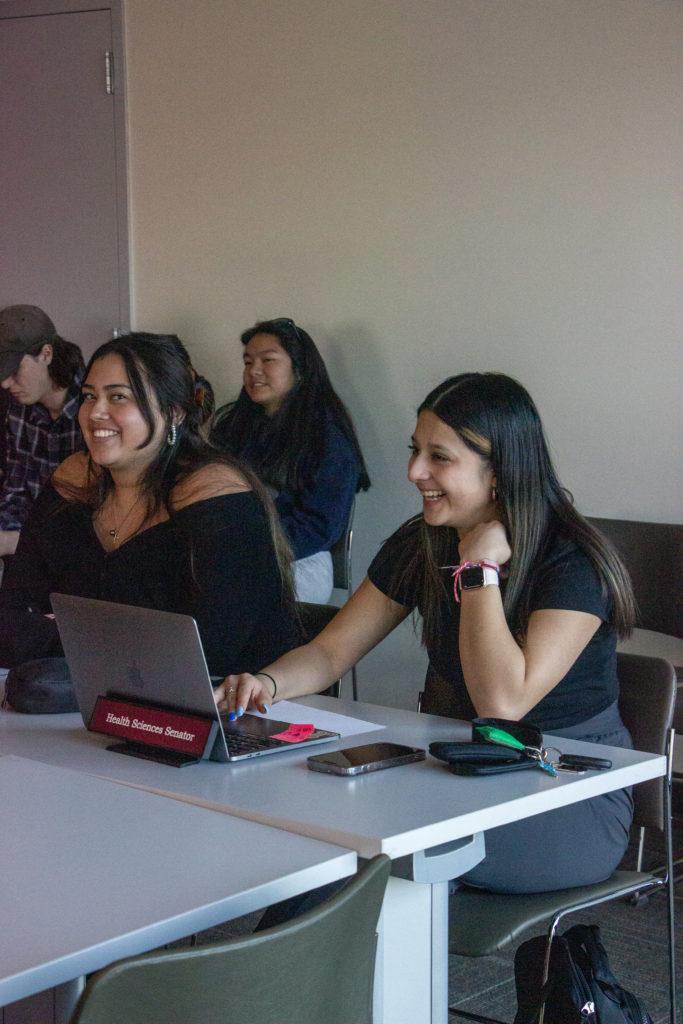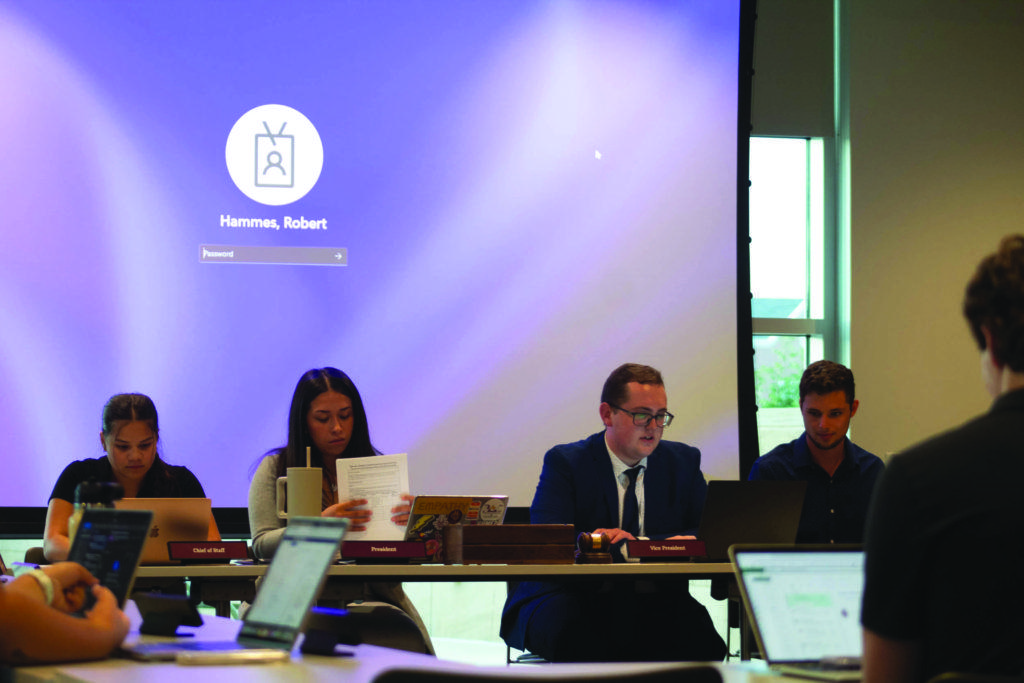Two weeks ago, Associated Student Government (ASG) Senator Richard Nguyen filed an official grievance against The Criterion and Editor in Chief Alec Williams.
Because the initial grievance filed was seen by the ASG Supreme Court to have no merit and was dismissed, there is nothing that the ASG can do to limit the content published by The Criterion.
After the dismissal of the grievance, which accused The Criterion of being “unprofessional, unethical, and quite frankly inexperienced,” Williams and a number of Criterion editors filed a grievance in response and defense of the newspaper.
While their grievance was dismissed on Sunday, Williams requested to speak before ASG the prior Wednesday during their weekly meeting on behalf of The Criterion to present their side of the case.
Nguyen’s grievance was filed in response to an article published by The Criterion on Nov. 14, “Sodexo: Employee admitted to lewd messages and quit.”
“I think it would have merit if he decided to speak to me personally,” Williams said. “If his intention was to raise his concerns, he’s failed, because all he’s done is make us concerned about our freedom of press.”
“I’ve heard some people’s disinterest in it and their complaints about it,” Nguyen said. “As a senator in their name, because I work with some of the students, I wanted to do right by them.”
In the initial grievance, Nguyen wrote, “I truly do not support that my student fee’s [sic] go towards paying such a vulgar, immature editorial staff.”
In response to that quote, Nguyen said, “What I meant by that is with the product that they’re putting out, they’re using over 11,000 students’ money […] And I think they need to honor that by representing our students a little bit better.”
Nguyen said he filed the grievance instead of publishing a letter to the editor or speaking to The Criterion personally because it seemed to be the most progressive action. A letter to the editor may not have sparked a discussion in student court, and the issue may not have been resolved.
Williams was led to filing a grievance of his own because he was concerned about the livelihood of his writers being threatened for exercising their First Amendment rights.
Williams also cited Nguyen’s “unprofessional” behavior of taping a copy of journalistic ethics one evening when no editor was present. Nguyen admitted this act was “childish.”
“When he files a grievance because we’re using our free speech, that’s a direct assault on our ability to exercise it, to voice our concerns,” Williams said.
During his presentation to ASG Wednesday night, Williams argued that the article in question had in no way violated any national, state or campus laws, nor the journalism code of ethics. It was written and published the way it was due to “our duty to share that information to its fullest and most accurate sense.”
In this way, The Criterion made a decision when publishing the article between what legally could have been done and what morally should have been done.
“Do you have a First Amendment right to print a bunch of vulgar language? I think you do. Should you? Different question,” Vice President of Student Services John Marshall said. “If the students don’t like the nature and the turn the newspaper has made, well that may not be a First Amendment criticism. That may be a fair criticism.”
Williams said in his presentation he believed it was no coincidence a grievance was filed against him the same week The Criterion published an article that implied disapproval of ASG.
“Maybe ASG is doing things that deserve to be criticized. It just sets a really disturbing precedent,” Williams said.
Many senators acknowledged The Criterion is a learning newspaper, a place open to all students for the purpose of making mistakes and improving because of them.
Nguyen acknowledged the newspaper’s faculty advisors. The issue could have come down to a lack of supervision at The Criterion.
“I think it’s important for the advisors to be involved, but at the same time for them to leave space for the students to learn and grow,” Nguyen said. “However, I do think that since it is a newspaper, and they are distributing it to a wide body, a student body, there should be an oversight. Not exactly what you can and cannot write, but making sure that the right thing goes out there.”
This scare is something that the editor in chief hopes will not arise again when the time comes for a new editor in chief to step in.
“I just hope this doesn’t happen again. That’s the resolve I’m hoping for,” Williams said.







